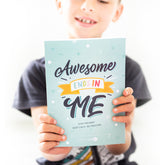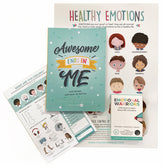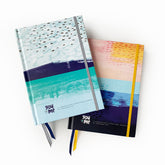Hi AwesoMErs,
How noisy is your mind? A rock concert of demands and thoughts?
What if I told you there was a simple and effective way to turn the volume down… yep, we’re talking about Mindfulness.
Last month in Module 2 RELAX: Part One I wrote about the idea that stress and anxiety can not only make us feel pretty unhappy and make life less enjoyable, they can impact hugely on our physical health. I introduced two of the easiest and most well researched relaxation techniques, diaphragmatic breathing and progressive muscle relaxation. This month in Module 3 our focus is on the power of relaxation, it is Mindfulness’ turn.
Mindfulness is hot topic in the wellness world and the research behind it suggests that it definitely deserves its time in the sun.
Not only does research show that Mindfulness (also known as Mindfulness Meditation) helps:
- focus your mind by decreasing all the noise from negative thoughts
- increase cognitive capacity by reducing the demands on your brain to deal with multiple problems/thoughts at once
- increase immunity
- decrease negative emotions and stress
- improve our relationships by helping us stay in the present with our loved ones (i.e. listen!)
It actually changes the shape of our brains.
In 2014 Researchers from the University of British Columbia and the Chemnitz University of Technology looked at more than 20 studies of the effect of mindfulness meditation on the brain and found that there was an increase in grey matter in areas related to self-regulation, emotional regulation, memory, learning, empathy, pain tolerance, and complex thinking to name a (very cool) few.
To date, there have been studies that show mindfulness mediation has improved well-being outcomes for school students, parents-to-be, health care workers, prison inmates, veterans, as well those experiencing negative and/or stress related emotions.
So, after establishing that it’s great and all, what is Mindfulness exactly?
Mindfulness has two parts:
Purposefully paying attention to the present moment and Accepting what you experience without judgement
By doing so, you can give your attention to the here and now, over time increasing your ability to really, fully experience the moment.
So how do you practice Mindfulness?
Join us for Module 3: RELAX: Part Two, in The Resilience Toolkit eCourse, as I show you how to quiet your mind.
“You can’t stop the waves, but you can learn to surf.”
As always, I want to end this month with a check back to your resilience stock takes. How did you go in Module 2 with your breathing practice? Has it made any shifts to your stock take scores? If you’ve made even small changes in your daily relaxation practice make sure to reflect and celebrate these.
Next month – optimism and gratitude. These are the founding principles of AwesoME Inc and I’m really looking forward to delving deeper into them with you.
Juliet
Get the full The Resilience Toolkit eCourse HERE
About Juliet Battersby
Juliet Battersby is a registered Educational Psychologist who has worked in special education with the Ministry of Education, with serving personnel and their families in the New Zealand Defence Force (NZDF), and assessing children’s cognitive and academic functioning in private practice.
Juliet has an MA(Hons) endorsed in Clinical Psychology and a Post Graduate Diploma in Educational Psychology. She is a registered Educational Psychologist with the New Zealand Psychologists Board.














